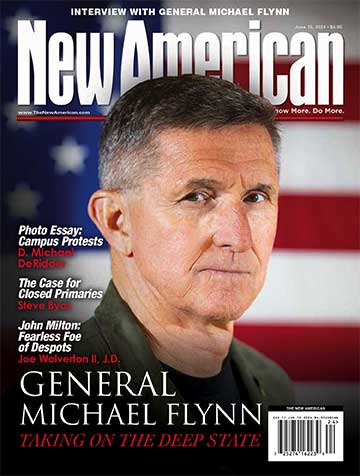
Retailers nationwide united on Thursday — designated by the National Retail Federation (NRF) as Fight Retail Crime Day — to push Congress to back the Combating Organized Retail Crime Act (CORCA). The bipartisan legislation is being promoted as a sensible solution that will help retailers and local communities address growing retail crime by amplifying resources and coordination among federal, state, and local law-enforcement agencies.
Senators Chuck Grassley (R-Iowa) and Catherine Cortez Masto (D-Nev.) co-sponsored CORCA earlier this year to target the “rise in flash mob robberies and intricate retail theft schemes sweeping the nation.”
“Stores throughout American communities have not been spared from a national crime wave. These organized theft rings have been developing new tactics to pilfer goods, causing economic harm to American businesses and putting consumers at risk while funding transnational criminal organizations throughout the world. These criminals are exploiting the internet and online marketplaces to stay one step ahead of the law, and it’s time the law catches up. This bill improves our federal response to organized retail crime and establishes new tools to recover goods and illicit proceeds, and deter future attacks on American retailers,” Grassley said in a press release.
An NRF blog post promoting Fight Retail Crime Day said the organization invited leaders from the “loss prevention community — those at the forefront of the battle against rising organized retail crime — to meet face-to-face with members of Congress and their staff to educate them on the need to act.”
CNBC reported that, “before holding individual meetings with retail officials, the bill’s co-sponsors joined NRF CEO Matthew Shay in a press conference outside the Capitol — where they framed the legislation as critical to retailers’ bottom lines and their employees’ safety.”
As summarized by Govtrack, the CORCA legislation will increase “federal enforcement of criminal offenses related to organized retail crime. Organized retail crime typically refers to large-scale retail theft and fraud by organized groups of professional shoplifters, or boosters, who make money by stealing merchandise and reselling it for a fraction of the retail cost.”
The legislation expands the offenses that qualify as federal crimes regarding “the transportation of stolen property across state lines and the sale or receipt of stolen goods.” The bill also focuses on underlying offenses for prosecution under the “federal money laundering statute and authorizes the criminal forfeiture of any property representing or traceable to the gross proceeds obtained as a result of an offense or a conspiracy to commit an offense.”
If passed, CORCA would add to the ever-growing labyrinth of government by directing the secretary of Homeland Security to establish the Center to Combat Organized Retail Crime to coordinate federal law-enforcement activities related to organized retail crime.
CNBC reported:
American Eagle Outfitters chief global asset protection officer Scott McBride, who is meeting with lawmakers to rally support for the law, pointed to the collaboration as a major benefit of the proposal.
“That’s one of the main purposes that allows us to have a charter within a federal agency to actually help us create a clearinghouse to aggregate properly to investigate more efficiently and more in depth,” he said.
Support for the legislation is being bolstered by the NRF’s 32nd annual National Retail Security Survey, which claims retail theft has an “undeniable impact on retailer margins and profitability,” and that “retailers are highly concerned about the heightened levels of violence and threat of violence associated with theft and crime.”
Dylan Jeon, senior director of government relations for NRF, shared that, according to the report,
retail crime accounted for over $112 billion in industry losses in 2022, up from $93.9 billion in 2021. Retailers are reporting not only an increase in theft and organized retail crime activity, but violence as well. In response, they are reallocating resources to address the risks: Of the surveyed retailers, 34% have increased internal payroll to support their risks, while 46% have increased the use of third-party security personnel. Over half (53%) have increased their technology and software solution budgets in the past year.
Based on survey results “from 177 retail brands, which accounted for $1.6 trillion of annual retail sales in 2022 and represent more than 97,000 retail locations across the United States,” the NRF report found that the cities most impacted by retail theft last year were:
- Los Angeles, California
- Oakland/San Francisco, California
- Houston, Texas
- New York City, New York
- Seattle, Washington
- Atlanta, Georgia
- Sacramento, California and Chicago, Illinois (tied)
- Denver, Colorado; Miami, Florida; and Albuquerque, New Mexico
The reported loss by retailers proves organized retail theft is a serious problem affecting the nation. It also confirms that lax laws such as California’s petty theft law, which lists stealing property of $950 or less as only a misdemeanor, don’t help.
Growing the federal government is not the answer to stopping organized retail crime. The most effective — and constitutional — way to stop these crimes is for state and local communities to act — or face the consequences of losing retailers and the revenue they generate.




